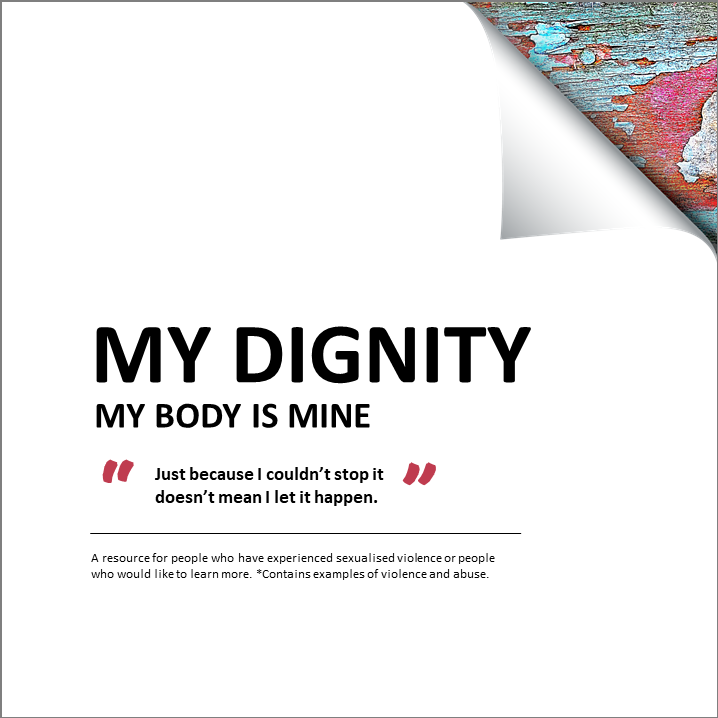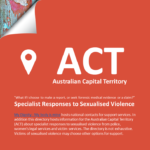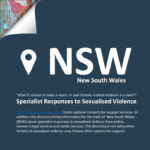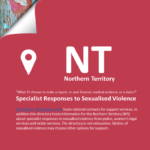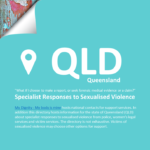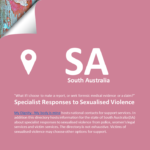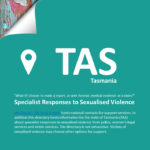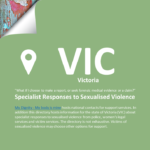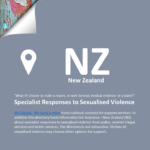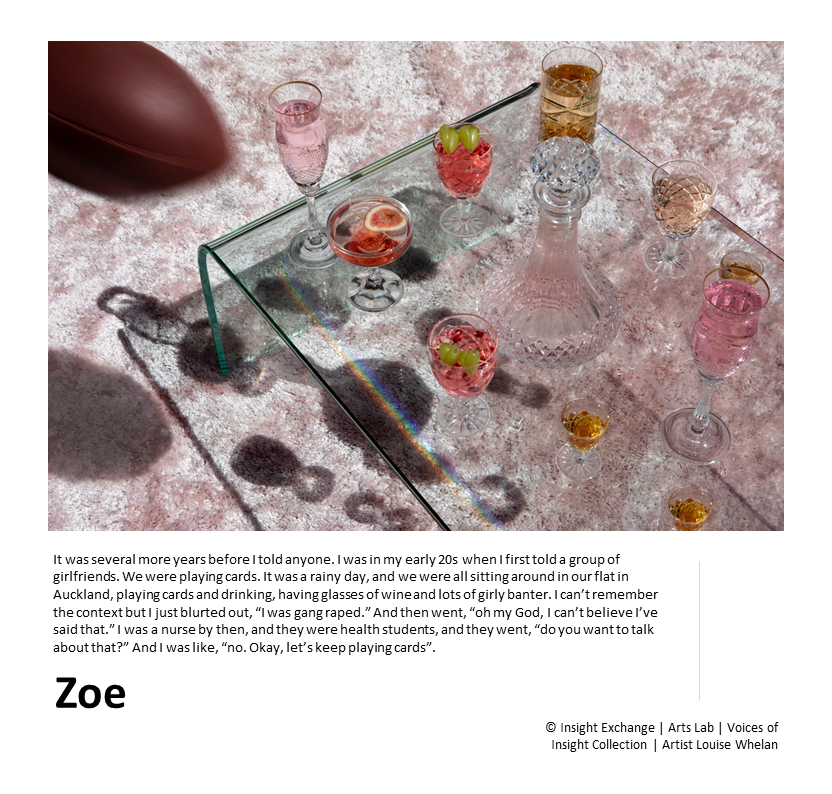My Dignity - My body is mine
My Dignity is an information and reflection resource about sexualised violence.
This resource is for any person who may be experiencing, or has experienced, sexualised violence, and for anyone who may be responding.
Wherever it is difficult to tell someone about domestic and family violence, it may be even more difficult to tell someone about sexualised violence. The intent of My Dignity is to provide information, support reflection, share lived experience insight from others, and signpost to contacts and supports.
National, state and territory definitions of domestic and family violence and criminal codes vary, however violence and abuse is never acceptable in any community, family, institution, place or context.
Read My Dignity - My body is mine (second edition)
Specialist Responses to Sexualised Violence
"What if I choose to make a report, or seek forensic medical evidence or a claim?"
My Dignity - My body is mine hosts national contacts for support services. In addition this directory below hosts information about specialist responses to sexualised violence from police, women’s legal services and victim services. The directory is not exhaustive. Victims of sexualised violence may choose other options for support.
AUSTRALIA

WESTERN AUSTRALIA (WA)
The Centre for Women's Safety and Wellbeing have launched a new Support and Services Directory. The directory is for any woman looking for support who is experiencing, or has experienced, abuse through family, domestic and/or sexual violence. https://cwsw.org.au/directory/
This Directory contains all the specialised Family and Domestic Violence Services that can be found throughout Western Australia as well as Sexual Assault Support Services, Legal Services, Women’s Community Based Health Services, and Men’s Supports and Programs. The Directory also includes Family and Domestic Violence and Sexual Assault Services for Children and Young People.
AOTEAROA - NEW ZEALAND (NZ)
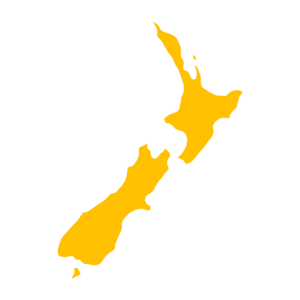
Lived experience insights
"....I was afraid of even speaking about it and having to tell anybody, and it being out there. If I could hold it in, somehow it would be like it didn’t happen..."
Zoe
Voices of Insight are de-identified narratives of people’s lived experience of domestic and family violence and other adversities. The narratives have been developed through the Insight Exchange interview process designed to affirm agency, uphold dignity and support safety.
‘Zoe’ - ‘The sexualised violence I experienced as a teen does not define me – I refuse it that.’
Read more - Voices of Insight
Julie
Event: Part A: The dilemma of disclosure (sexualised violence) and Part B: the problem of non-disclosure agreements (NDA)
The University of Sydney Law School and Insight Exchange collaborated to host a virtual event with author of ‘Going Public’ Distinguished Professor Julie Macfarlane.
Amongst the many awards Julie has achieved throughout her career, she received the Order of Canada in 2020 and her citation reads: “Julie Macfarlane is committed to making access to justice affordable for all. Her activism has resulted in a paradigm shift for the courts. Notably, as founder of the National Self-Represented Litigant Project, she has inspired debate on self-representation and provided invaluable services, resources and education tools to individuals confronting the judicial system. A professor of law and a distinguished university professor at the University of Windsor for more than 25 years, she is also esteemed for her writing on sexual violence and her advocacy for survivors, as well as for her study of Islamic divorce.”
Read more - Voices unsilenced
Read more about My Dignity - My body is mine
- We welcome continued feedback in order to improve future editions - share your response via the response survey.
- Read the Feedback Report on My Dignity which has informed the first edition.
- Explore the free posters and cards of My Dignity.
Strangulation
The perpetration of strangulation is a serious problem globally. So, how can we improve our understanding of and responses to strangulation?
View/share/embed the short animation (5mins) about the dangers of strangulation.
Find out more on our landing page - In focus: Strangulation includes a free 60min Foundations Module, Arts Lab Collection, Additional Resources List
Pornography - Strangulation
It’s Time We talked (Australia) It’s time we talked is a violence prevention initiative that supports young people, parents, schools, government and the community sector to understand and address the influence of pornography. https://itstimewetalked.com/
Our Watch (Australia) Our Watch is a national leader in the primary prevention of violence against women and their children in Australia. It strives to embed gender equality and prevent violence where Australians live, learn, work and socialise. https://media-cdn.ourwatch.org.au/wp-content/uploads/sites/2/2020/11/20022415/Pornography-young-people-preventing-violence.pdf
The Light Project (NZ) Accessible information and resources for young people navigating sexually explicit online content including strangulation. In The Know | Got questions about porn, nudes or online sexual stuff? https://www.intheknow.co.nz/

